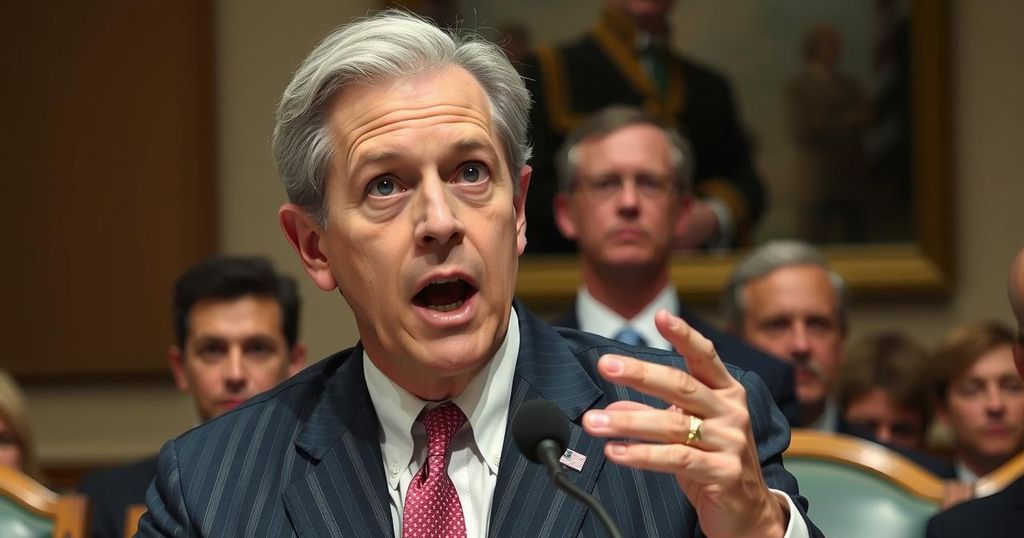Secretary of State Antony Blinken defended the Biden administration’s handling of the Afghanistan withdrawal during testimony before Congress. He faced heavy criticism from Republican lawmakers, particularly regarding the chaotic exit and its consequences, which included a resurgence of the Taliban. The discourse highlights the complicated legacy of U.S. foreign policy under both Republican and Democratic leadership.
On Wednesday, Secretary of State Antony Blinken testified before the House Foreign Affairs Committee regarding the U.S. withdrawal from Afghanistan, a critical moment during President Joe Biden’s administration. Texas Republican Representative Michael McCaul criticized the withdrawal, asserting that it marked the onset of a failed foreign policy that exacerbated global instability. In a heartfelt moment, Blinken expressed his condolences to families of U.S. service members who lost their lives during the evacuation, acknowledging the emotional distress that the event has caused.
Despite facing protests and vocal dissent from the audience, Blinken defended the administration’s actions, emphasizing that the withdrawal agreement, which was negotiated by former President Donald Trump, limited the options available to Biden. He articulated that the choice presented was ultimately between concluding the war or intensifying hostilities, claiming that non-compliance with the agreement would have led to renewed attacks.
Amidst rising criticism, particularly from Republican members of Congress, Blinken’s testimony comes on the heels of a Republican-led report condemning the administration for the chaotic exit. This scrutiny, however, has been met with efforts to diminish Trump’s role in the unfolding events. The report documented a series of systemic failures across multiple presidential terms, ultimately attributing dual responsibility to both Presidents Biden and Trump for the withdrawal’s fallout.
The withdrawal of American troops from Afghanistan in August 2021 stands as one of the most controversial episodes in recent U.S. foreign policy. Following nearly two decades of military engagement, the U.S. faced immense scrutiny regarding the manner in which it executed the withdrawal, which coincided with the Taliban’s rapid resurgence. The deal negotiated by the Trump administration in February 2020 set a deadline for U.S. troop withdrawal, a decision that initiated a series of events culminating in significant chaos and loss of life. The August evacuation highlighted severe deficiencies in planning and execution, prompting investigations and bipartisan discussions about responsibility for the outcomes.
In conclusion, Secretary Antony Blinken’s recent testimony before Congress has brought renewed focus on the contentious withdrawal from Afghanistan, illuminating the complex interplay of decisions made by both the Trump and Biden administrations. The strong criticism from Republicans elucidates the belief that the chaotic end to the military engagement has had long-lasting repercussions for U.S. foreign policy. As public and political scrutiny continues, the legacy of the withdrawal remains a pivotal issue in evaluating the efficacy of American actions abroad.
Original Source: www.mercurynews.com






